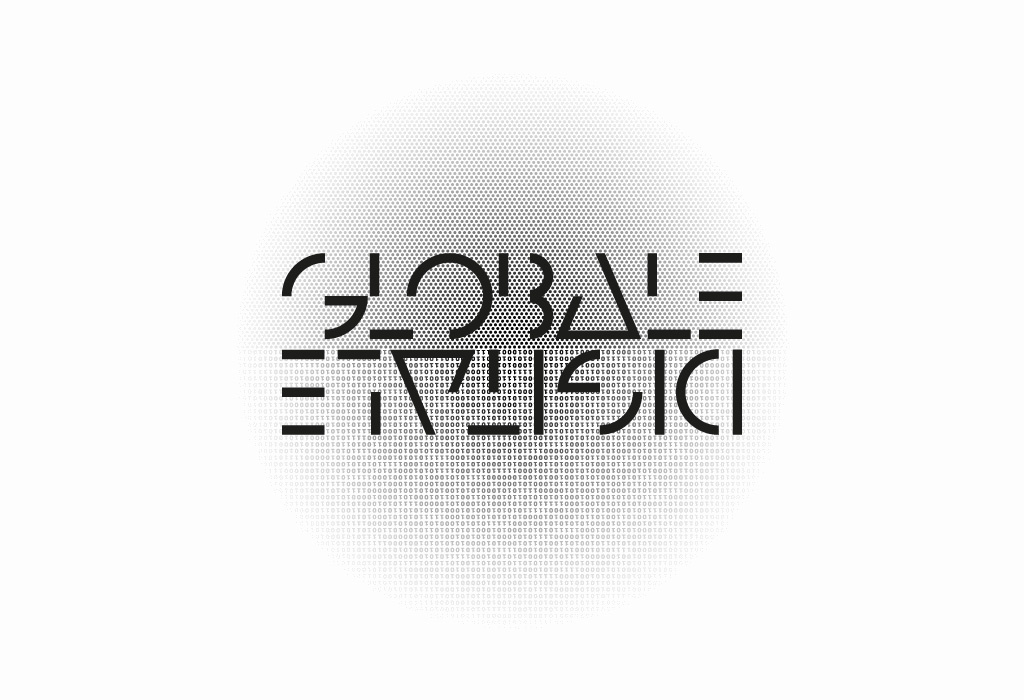Art/ 300 days/ Seen globally/
from June 2015/ at the ZKM and at selected locations in the city of Karlsruhe
Globalization has transformed the world. But the function and context of art, along with the manner in which art is presented has also changed. It is for this reason that the ZKM has entitled the new exhibition format that shows the variety and wealth of contemporary art GLOBALE. This does not connote a geopolitical extension of the art system to include hitherto marginalized continents, but shows the cultural effects of globalization, the reciprocal influences and questions of various cultures. For a long time art, philosophy and religion were considered the dominant, but also rivaling systems for explaining the world. Since modernity, however, the natural sciences, technology and politics have also been included as systems of reference. They not only interpret the world, but also develop the culture tools with which to change it. This moment of action has also been adopted by art which, following the iconic and linguistic
turns, has led to the performative turn and to the substitution of representation by way of reality. Thus, new options should be thematized by contemporary approaches from all disciplines, ranging from art, design, architecture, music, media, natural sciences, technology, economics, to ecology, etc. GLOBALE is scheduled to begin with the 300-year anniversary of the foundation stone ceremony of the City of Karlsruhe in June, 2015, and will continue through to mid-April, 2016.
RENAISSANCE 2.0
We perceive several cultures simultaneously reflected in the mirror of globalization. Other lines of tradition also flow into general reflections. Hence, we must start from extended concepts of classical antiquity and the Renaissance. GLOBALE shows the ways in which art and science approximate one another by way of new technologies, thereby opening up a dimension to the future – a Renaissance 2.0: The connections between art, science and technology, between digital revolution and the development of democracy are disclosed through this new concept of art.
GLOBALIZATION
The technical innovations, among the most decisive of which is the global Internet, established important preconditions for the economic, political and social developments now subsumed by the term globalization. The abolishment of political and ideological boundaries also had ramifications for culture. Today, global means a view to the world, not as a globe, but as the confluence of diverse cultural currents moving at varying speeds. GLOBALE presents works from around the world underlining the fact that it is not solely the western perspective which is in a position to decide what and what is not art.
EXO-EVOLUTION
Scientists claim that we currently find ourselves in the anthropocene epoch, of which the human being is the most important influential factor in the earth’s biological, geological and atmospheric process. Institutions and individuals from around the world show how, today, they are already forming the future, continuing to make planet earth habitable for the human being. With the industrial revolution, the human has increasingly become the “freedman of creation” (J.G. Herder 1734–1791). He has stepped out of natural evolution into the self-made exo-evolution. The crucial question now, is how the freeman of nature can avoid being held hostage by the new information and military complex. Here, civic involvement, images of science and Big Data will assume a major role, as well as the themes of energy, resources and global health policy.
INFOSPHERES
Alongside the atmosphere, which is indispensable for the human being as biological entity, an infosphere has evidently become necessary for the co-habitation of seven billion people as a social entity: a network of wireless radio communications via electromagnetic waves (radio, television, telephone, satellite, Internet, etc.). This guarantees global data exchange and the organization of goods via data traffic. The danger of atmospheric pollution applies no less for the infosphere. Freedom for the infosphere is law, and an eleventh biblical commandment is required: Thou shalt not covet thy neighbor’s data.
The exhibition will not remain static, but change over the ensuing months. New works will be regularly grouped around several central exhibits, such that, when returning, visitors will invariably experience something new. A non-hierarchical, multipolar, new type of exhibition emerges which, by way of the participation of partners from around the world, will present the diverse facets of contemporary global art production.
